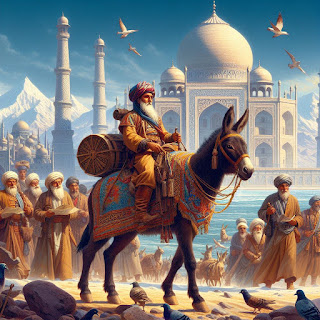Don't Jump to Conclusion

Although he was supposed to be a wise and holy man, Nasrudin was accused of being almost illiterate. One day the ruler of his country decided to put this to the test. 'Write something for me, Nasrudin , 'said he. 'I would willingly do so, but I have taken an oath never to write so much as a single letter again,' said Nasrudin . 'Well, write something in the way in which you used to write before you decided not to write, so that I can see what it was like.' 'I cannot do that, because every time you write something your writing changes slightly through practices. If I wrote now, it would be something written for now.' 'Then bring me an example of his writing, anyone who has one,' ordered the ruler. Someone brought a terrible scrawl that the Mulla had once written to him. 'Is this your writings?'asked the Monarch. 'No,' said Nasrudin. 'Not only does writing change with time, but you are now showing a piece of writing done by me ...























